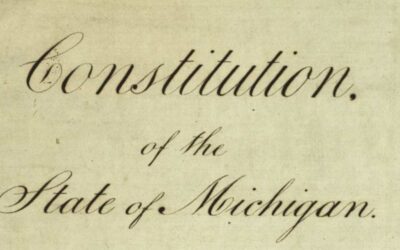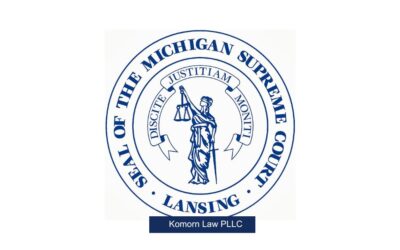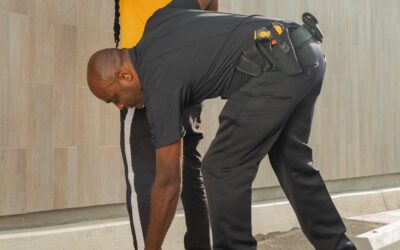Squatters
Squatting, in one definition is the unauthorized occupation of a property, can be a frustrating ordeal for property owners in Michigan. Understanding the relevant laws and procedures is crucial for regaining possession of your property.
Squatting vs. Adverse Possession: Key Differences
Michigan law differentiates between squatting and adverse possession. Squatting refers to the unlawful occupation of a property without the owner’s consent. In contrast, adverse possession allows someone who isn’t the legal owner to gain ownership rights under specific circumstances, as outlined in MCL § 600.5801. To establish adverse possession, an occupant must demonstrate:
- Continuous occupancy: Occupying the property for at least 15 consecutive years (MCL § 600.5801(1)).
- Color of title: Possessing a document, though potentially flawed, that suggests ownership (MCL § 600.5801(2)). However, simply paying rent or utilities doesn’t constitute color of title.
- Payment of property taxes: Paying property taxes for at least ten consecutive years (MCL § 600.5801(2)).
Open, notorious, and hostile possession: Occupying the property openly, demonstrably, and claiming it as their own, even if mistakenly (MCL § 600.5801(3, 4)).
The burden of proof lies with the squatter to establish adverse possession. Notably, Michigan courts have interpreted these requirements strictly, making it difficult for squatters to gain ownership rights.
News Articles and Information
MML-Michigan Communities and Squatting: What You Need to Know (PDF)
Here’s how homeowners can fight against squatter insanity
And now for something completely different…
Self-Help Eviction: A Unique Feature in Michigan
Michigan offers a unique remedy for property owners facing squatters: self-help eviction. Unlike most states, Michigan law allows owners to take specific steps to make the property unappealing for squatters, encouraging them to leave voluntarily.
Important Caveats: It’s crucial to note that self-help eviction has limitations:
No removal of belongings: Owners cannot remove the squatter’s belongings or physically force them out.
Tenant vs. squatter: This method only applies to squatters, not tenants with a valid lease agreement. Evicting tenants requires a formal eviction process through the court system.
Potential legal repercussions: Improper use of self-help measures could result in legal action from the squatter. Consulting an attorney before taking any steps is highly recommended.
Getting Rid of Squatters
If you discover that someone unauthorized is occupying your property, contact the police. However, be aware that the police may consider it a civil issue and advise you to pursue eviction through the courts. It is important to note that squatting is considered a misdemeanor in Michigan, even if law enforcement may not be fully aware of this fact.
Instead of waiting on or dealing with the police, property owners in Michigan can take action to remove illegal occupants within the limits of the law:
- Kindly request the squatter to vacate the premises within a specified timeframe.
- Notify the squatter that legal measures will be pursued if they fail to comply promptly.
- While the squatter is away from the property, consider changing the locks, securing entry points, boarding up windows, and implementing additional barriers like fences to prevent re-entry.
Obstruction Laws in Michigan
Move along or you'll be arrested for Obstruction of "Justice".In Michigan, obstruction is a crime that involves interfering with law enforcement or other officials when they are trying to carry out their duties. Obstruction can cover a wide range of actions, including...
Resisting Arrest in Michigan
Stop resisting! Stop resisting!In Michigan, resisting arrest is a serious crime. Under Michigan Compiled Law (MCL) 750.81d, it is illegal to resist or obstruct a police officer or any other law enforcement official when they are performing their duties. This law...
Criminal Trespass: Legal Ramifications of Squatting
Squatting in Michigan is considered criminal trespass under MCL 750.553. This statute classifies trespassing as a misdemeanor for first offenses, punishable by fines up to $5,000 or imprisonment for up to 180 days, or both. Subsequent offenses become felonies with steeper penalties.
There are additional trespassing classifications based on the property type:
- Residential property: Trespassing on a single-family or two-family dwelling is typically a misdemeanor.
- Commercial property: Trespassing on commercial buildings, industrial sites, construction zones, or utility property can be charged as a felony.
Property owners who suspect squatting should contact law enforcement. Officers can remove squatters if they lack a legal right to be on the property.
The Law
750.553 Occupancy of building without consent; violation; penalty; exception.
Sec. 553.
Other Articles
Squatters and the Law in Michigan
Squatters and YouSquatting, in one definition is the act of occupying a property without legal permission, can be a headache for both property owners and squatters themselves. Sorry to cause you a such a headache squatter. Michigan has specific laws addressing...
Adverse Possession in Michigan – Can Someone Claim Your Property?
Understanding Adverse Possession in MichiganMichigan recognizes adverse possession, a legal doctrine allowing someone to acquire ownership of real property they've occupied for a specific period, even without a formal title.The Statute: MCL 600.5801 The relevant...
Red Flag Rules for Extreme Risk Protection Orders-Firearms Act
Michigan Supreme Court - These changes follow the creation of the Extreme Risk Protection Order Act and amendments to the Firearms Act. Red Flag Laws.Effective February 13, 2024On February 6, 2024, the Michigan Supreme Court issued ADM File No. 2023-24, which adopts...
Laws passed by Michigan lawmakers in 2023 will take effect
Several new laws passed by Michigan lawmakers in 2023 will take effect on Tuesday, Feb 13, 2023Making use of the first combined Democratic majority in the state House, Senate, and governor's seat in decades, legislators have the numbers and have successfully approved...
More Posts
Court Ruling – No bonus for growing weed
COURT RULING – SORRY NO BONUS FOR GROWING CANNABISA marijuana farm worker is unable to succeed in his breach-of-contract lawsuit regarding a $100,000 bonus he claims to...
SCOTUS – Justices uphold laws targeting homelessness
Does not amount to “cruel and unusual punishment” under the Eighth Amendment The Supreme Court has affirmed the validity of ordinances in a southwest Oregon city that...
Michigan Crime Victim Compensation
Michigan has a crime victim compensation fund. You can contact them using the various links on this page. This post is just to provide you with information. We do not...
The Takings Clauses of the United States and Michigan
These clauses protect property rights and maintain a balance between public needs and individual ownership The Takings Clauses of the United States and Michigan...
Michigan Supreme Court – People of Michigan v. Duff
A seizure may occur when a police vehicle partially blocks a defendant’s egress if thetotality of the circumstances indicate that a reasonable person would not have...
Michigan Supreme Court – Money back for former homeowners
In a landmark decision, the Michigan Supreme Court has ruled that counties cannot retain surplus proceeds from tax-foreclosed property sales, a move poised to return...
Komorn Law Case Victories
Just some of our victoriesState / Federal Legal Defense With extensive experience in criminal legal defense since 1993 from pre-arrest, District, Circuit, Appeals,...
Michigan Court of Appeals – Case Summary People v Bosworth
Michigan Court of Appeals - People v. Bosworth Despite these efforts, the jury found the evidence against Bosworth compelling. In the case of People v. Christopher...
Michigan Court of Appeals – Case Analysis People v. Jackson
Michigan Court of Appeals - People v MICHAEL JACKSON Several critical legal issues emerged during the trial and subsequent appeals process including self defense claim...
Michigan Supreme Court restores wage and sick leave laws
Citizen-initiated proposals aimed at increasing the minimum wage and expanding paid sick leave In a significant ruling, the Michigan Supreme Court has reinstated the...





















